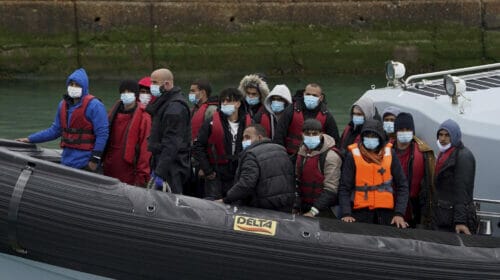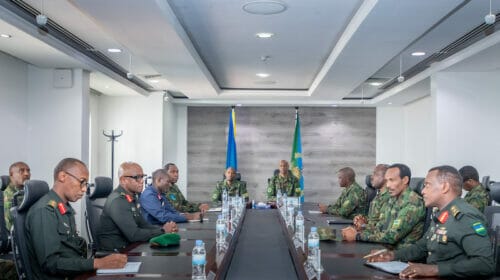Is Rwanda Losing What It Has Gained Since 1994?
So much needed fixing. The marauding Interahamwe had been defeated, the killings halted and a new government promised so much in terms of development and getting the country back on track. At the centre of all this, a certain Major Gen Paul Kagame, was pulling the strings. After successfully leading the force that took over Kigali, he embarked on forming an inclusive government, with the aim of uniting Rwandans. Not credit him for trying or at least for the economic progress that Rwanda has witnessed during this period, would be unfair.
There is going to be the argument about time spent in power. People can rightly argue that he has had so much time to do what he has done, and that with as much aid that Rwanda has received during his tenure, any fit-for-purpose human being would have performed.
This may be true but you still would have needed someone with character. While President Kagame has the character, has had the luck, agility and steady fastness, he truly is no saint. So often, he has been discovered as wanting in statesmanship, democracy and ability to engage with perceived enemies.
Mr. Kagame is from the school of thought who consider dissent as being irrational, uncalled for, and therefore, something that must be fought. To Kagame, leaders are meant to be respected and any divergent views must be expressed directly through stipulated channels (in most cases, composed of his most trusted lieutenants) and on which he has ultimate control. In doing so, he has centralised power, creating or promoting a circle of top trusted friends, who many see as the inner circle, which is out to make or break Rwanda. Remember, this is a government, which accused their predecessors of promoting the infamous “Akazu” a top circle grouping of Juvenile Habyalimana’s trusted cadres, believed to have executed the genocide.
So, when Hilary Clinton, says that “We really don’t want to see Rwanda undermine its own remarkable progress by beginning to move away from a lot of the very positive actions that undergirded its development so effectively,” she has a point.
Culture of Silence
Rwanda’s problem has been and continues to be the inexplicable silence embraced by her citizens who despite having mixed feelings about what is going on inside their country choose to either pretend that everything is right, or keep numb about all. Silence in Rwanda, is a virtue. Anything said, risks being misinterpreted for the bad and after years of experience, Rwandans have learnt to gag themselves, or control their speech. It is a culture not only of silence but self-censorship as well.
While silence insulates some of the prevalent anger from some members of society at say such things as governance issues, imbalance in power, lack of political space or a not very fair policy, some say, on unity and reconciliation, it encourages pretense. In Rwanda today, there are people who believe that the government should have borrowed a leaf from South Africa’s handling of apartheid, when dealing with genocide and its effects. But because such rhetoric risks being interpreted as a way of inciting public anger, a possible crime under the genocide ideology law, many choose to stay silent and instead moan about it to friends and relatives under closed doors. The government then, gets the feeling that the policy is working when in actual fact, it is the silence and the fear of persecution or being wrongly misinterpreted, which are keeping argument, at bay.
Normally, when members of the public are so afraid to speak out, the onus falls on the media to express people’s views. But the media in Rwanda remains dysfunctional. Weeks after a critical journalist was shot under circumstances that we may never establish, another, Saidati Mukakibibi, has been arrested for comparing Kagame to Hitler. The state maintains her writings would have incited public disorder and promoted divisionism. I asked a government minister if Kagame has become so incomparable that trying to find a comparison amounts to a criminal offence. On top of insisting that I don’t quote him, the minister believes “the police should not have over reacted to someone’s personal opinion although the president deserves respect”. Hitler, the minister added, “cannot be the best comparison you can have”.
If Hitler is worse a comparison, then who is, I asked? He hung up before answering. My chat with the minister goes to explain what many struggle to see with Rwandan politics. In Rwanda, you either, dance to the melody of “Kagame is Lord”, “the best we ever had” and keep your bread, or challenge his views and risk being done for either corruption, genocide or immorality. If a minister finds it hard speaking to journalists, even when he is giving a plain statement, imagine how it must feel being a local and standing out to challenge the establishment, inside Rwanda?
Is there hope?
A friend of mine asked me this particular question the other day on Facebook. While I believe in hope being abundant, I know it takes some convincing to tell people it is there when you have pregnant mothers being imprisoned for attending peaceful demonstrations, opposition party members like Bernard Ntaganda, the founder president of PS-Imberakuri being denied their constitutional right to bail and some opposition party activists simply disappearing, as in the case Andrew Kagwa Rwisereka of the Democratic Green Party of Rwanda.
The future looks not so clear and I am sure there are so many Rwandans out there, who would love to see Clinton, demand freedoms from Rwanda’s iron man, instead of meandering around diplomatic language and deploring the fact that Rwanda is in danger of losing what it has gained since 1994.
America, just like other Western countries should rethink their relationship with Mr. Kagame, not for his sake but that of democracy and Rwandans. Like Timothy Kalyegira put it the other day, for all the fine wine, decorations and music at a wedding party, it is resolving differences, balancing needs and compromises that are the core of a marriage.
Submitted by: Jennifer Fierberg, MSW
Mr. Akanga has a personal blog that can be found here http://ellyakanga.wordpress.com/ He writes from his experience as a Rwandan journalist and his very challenging time reporting on East Africa. He can be reached at his blog or at ellyakanga@usa.com


